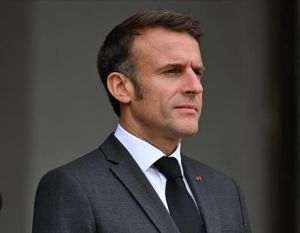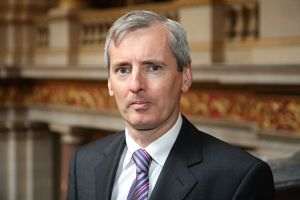The European Central Bank has cut all the interest rates it "controls" in the last monetary policy session, in hopes of stimulating economic growth and inflation.
The policy rate has been cut by 5 basis points, to 0%, the interest rate for the lending facility has been cut to 0.25%, and the interest rate on the deposit facility has been cut according to expectations, by 10 basis points, to -0.4%.
An "overwhelming majority" voted in favor of the new monetary policy measures, according to the statement by Mario Draghi.
Investor attention is increasingly focusing on on the deposit facility, because its level represents the minimum threshold for the yield of the securities accepted as part of the quantitative easing program. "On principle, the acquisition of debt securities with a negative yield is allowed, as long as the yield is greater than then interest rate on the deposit facility", a press release by the ECB states, referring to the terms for the bonds purchase program.
The expansion of the monthly acquisition program to 80 billion Euros, up from 60 billion Euros previously, along with including investment grade corporate bonds in this program, has led to the publication of some comments in the international press, along the lines of "the ECB bazooka working above expectations". ECB data shows that the purchases of financial bonds issued by the public and private sector amounted to 62 billion Euros in February 2016.
Another decision of the ECB shows that the concerns expressed at the level of the banking system, concerning the effects of negative interest rates on market profitability and liquidity, have been taken into account. The European Central Bank has also announced the launch of four new long-term refinancing operations (TLTRO II) with a four-year maturity and interest rates that "can reach the level of the interest rate for the deposit facility", starting with June 2016, as stated in the press release. The operations will be performed quarterly, and the last TLTRO operation will reach maturity in March 2021, according to statements by Mario Draghi. The amounts borrowed by banks as part of these operations depend on the amount of the loans in the portfolio, so as to allow the ECB to reach its goal, of boosting lending.
That means that the ECB will pay banks to "refinance" over a long period of time, but the nature of the financial securities which will be accepted as collateral in the TLTRO II is not known. As part of the first refinancing operations only the securities with the highest rating have been accepted, but the conditions have been significantly eased over the last few years. Perhaps the prediction made by a German MP in 2012, who told Handelsblatt that "if the ECB keeps going that way, it will soon end up buying even old bicycles" will come true eventually.
In Mario Draghi's opinion, "the exhaustive package will exploit the synergies of the monetary policy instruments", and the accelerated rise of the European stock market indexes, along with the significant weakening of the Euro against the dollar seem to indicate the resurrection of investor confidence.
But how long will the exuberance of the synergies last when faced with reality? The rise of the stock exchanges petered out after a few minutes, and the Euro rose to 1.095 USD/EUR, from approximately 1.08 USD/EUR after the announcement of the monetary policy decision. During the press conference, the Euro rose even more, passing the level of 1.11 USD/EUR.
Mario Draghi once again mentioned the deflationary threat, as well as the need for structural reforms. In the press conference nobody asked whether the quantitative easing wasn't in fact the main hurdle to structural reforms.
As for the deflationary threat, Patrick Artus, the chief-economist of investment bank Natixis, recently wrote that "deflation represents a decline of the GFP deflator and not of the CPI". According to the definition found on the NBR website, the GDP deflator is "the index which measures the price variation of all the end-user goods and services created in an economy, over a specified period".
Is the French economist accusing the ECB of pursuing a false "target", while the true objective is different? Artus backs up his statement with the fact that investors are faced with real interest rates calculated based on the price of capital goods, and the profitability of companies depends on the ratio between the GDP deflator and the unit labor cost, while consumer prices depend on the prices of energy, foods and services which are not acquired using loans.
Based on that definition of deflation, Artus argues that a deflationary risk only exists in China and in Great Britain. The latest Eurostat data shows that the GDP deflator for the Eurozone was +1.3% in Q4 2015 and in the previous two quarters and +0.9% in Q4 2014.
Upon celebrating seven years of rise for the American stock markets following the quantitative easing programs of the Federal Reserve, Richard Fisher, former president of the Federal Reserve Bank of Dallas and former member of the Monetary Policy Committee (FOMC), said that "We have injected heroin and cocaine into the system to create the welfare effect, and now we are trying to preserve that with Ritalin".
According to Richard Fisher, the limited effects the QE had on the real economy are the fault of the "incapable fiscal authorities", meaning president Obama and the American Congress, the former Federal Reserve official said on CNBC.
Will things go differently in Europe than in the United States or will Draghi's bazooka shot only mark the illusion peddlers going into overdose?
"We have injected heroin and cocaine into the system to create the welfare effect, and now we are trying to preserve that with Ritalin".
Richard Fisher, former president of the Federal Reserve Bank of Dallas
• The ECB is asking the great banks to review the risks of a potential Brexit
The European Central Bank (EC) has asked the major banks that it oversees to analyze the risks they would be faced with if Great Britain were to exit the European Union (Brexit), a source close to the situation quoted by Bloomberg says.
According to the aforementioned source, the ECB is working individually with banks and it is also urging companies to be prepared for everything that could impact them, in the event of a Brexit.
The governor of the Bank of England, Mark Carney recently warned that a potential exit of Great Britain from the EU would affect the country's financial City and would aggravate the threats to financial stability. Last week, Mark Carney said that if Great Britain were to leave the European Union, banks would probably move some of their businesses to the EU.
So far, some European banks, including "Deutsche Bank" AG (Germany) and "ING Groep" NV (Holland) have announced that they might move their employees from Great Britain if that country were to vote in favor of exiting the European block in the referendum scheduled for June 23rd.
The British division of the biggest Spanish bank, "Banco Santander" SA, has informed, in its annual report concerning its financial results, that "it has evaluated the potential consequences of a potential British exit from the EU, and the potential impact of the market instability in the period before the referendum, respectively".
At the end of last week, German publication Handelsblatt also wrote that lately, the possible consequences of a potential British exit would have on the financial markets and banks have been the main concern of the ECB.
Quoting a source from the ECB, the aforementioned newspaper notes: "The Brexit is the biggest threat to financial stability this year". (A.V.)


















































